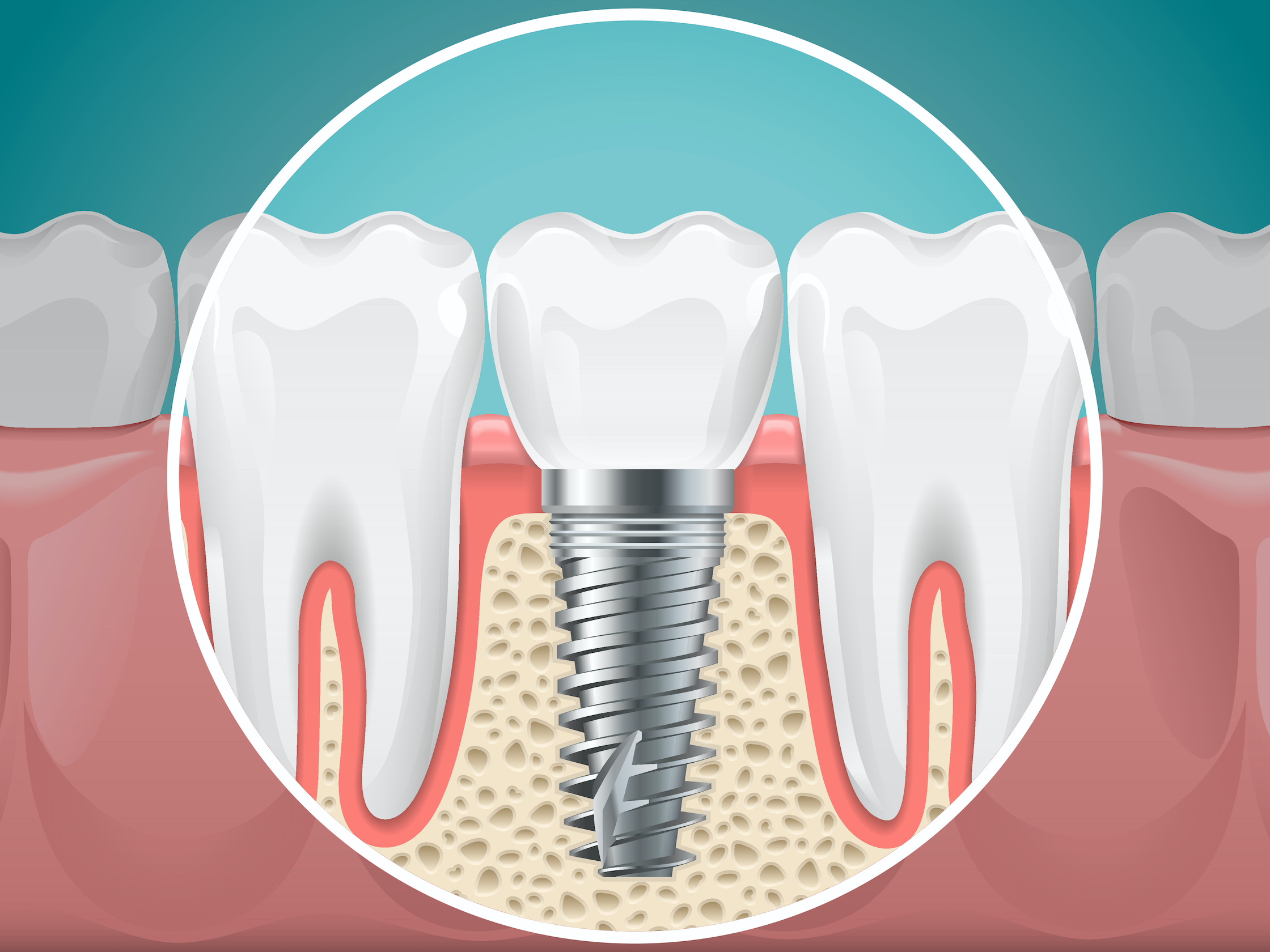
Are Dental Implants Right For You?
Missing teeth can cause difficulty chewing, speech issues, shifting teeth, and a multitude of other problems. Having one or more missing teeth can also lower a person’s self-confidence, especially when empty spaces are visible when smiling. Dental implants are a highly-effective solution for replacing missing teeth.
A dental implant is an artificial tooth root that provides a permanent base for a fixed, replacement tooth. Dental implants feel, fit, and function like natural teeth. They tend to last longer than alternative options like bridges, dentures, and crowns. When placed by an experienced Melbourne, FL dentist, dental implants can help create a beautiful and fully functional smile.
What are Dental Implants?
A dental implant is essentially a man-made replacement for a tooth root. It is composed of a titanium cylinder or screw. This is surgically inserted into the jawbone where there is a missing tooth. Once in place, a replacement tooth is mounted onto the implant. As implants fuse to the jawbone, they provide a stable base for artificial teeth. Unlike bridges and dentures, dental implants will not slip or shift in the mouth. Individual dental crowns are placed over the implant which look and function like real teeth.
Dental implants generally involve three parts:
- Implant – This is the screw that is permanently attached to the jaw and serves as the root for the new tooth.
- Crown – This is the prosthetic tooth that is usually constructed from porcelain or zirconium.
- Abutment – This is a connector that holds and supports a tooth or set of teeth. It is only removable by your dentist.
Who Can Get Dental Implants?
You may be a good candidate for dental implants if you have one or more missing teeth. However, there are certain factors that influence whether or not a dental implant is a good choice, such as age. Children and adolescents may need to wait until their facial growth has been completed before getting dental implants. Facial development usually stops around age 16 for girls and age 18 for boys.
Certain health and lifestyle choices can also impact the likelihood of a successful dental implant. If you have an uncontrolled chronic disorder, such as diabetes, are a heavy smoker, or have had radiation therapy on your neck or head, you will need to undergo an evaluation by your Melbourne, Fl dentist to see if you are a proper fit. A good candidate will also need to have a sufficient amount of healthy bone to support an implant.
Types of Dental Implants
The American Academy of Implant Dentistry deems two different types of dental implants to be safe.
- Endosteal Implants – This implant is inserted into the jawbone during surgery and the gum tissue is allowed time to heal. Once healed, another surgery connects a post to the implant. A crown is then attached to each post individually or grouped on a denture or bridge.
- Subperiosteal Implants – This type of implant is recommended to patients who do not have enough healthy bone to use an endosteal implant. A subperiosteal implant consists of a mental frame that is attached to the jawbone below the gums. The frame becomes fixed to the jawbone as the gum tissue heals. Finally, an artificial tooth is mounted onto the post.
Recovery After Dental Implants
Many patients wonder what recovery is like after getting dental implants. This ultimately depends on the type of dental implant and how well the patient follows after-care instructions. Once an implant is placed, it is critical to maintain strict oral hygiene habits. Good habits will help ensure proper integration with the bone structure. A dental implant could potentially fail if a patient does not brush and floss regularly. Smoking also contributes to a high failure rate and should be avoided following the procedure.
After the placement of the implant, it is normal to experience some discomfort. The face and gums may swell and there may be minor bruising and bleeding at the implant site. Your dentist may prescribe medication to relieve any pain. For the first few days, it is important to restrict your diet to soft foods. Healing can take up to six months and the fitting of the crown can take an additional two months.
Schedule a Consultation
If you are interested in learning more about dental implants, contact our experienced dental team at Artistic Touch Dentistry today.

